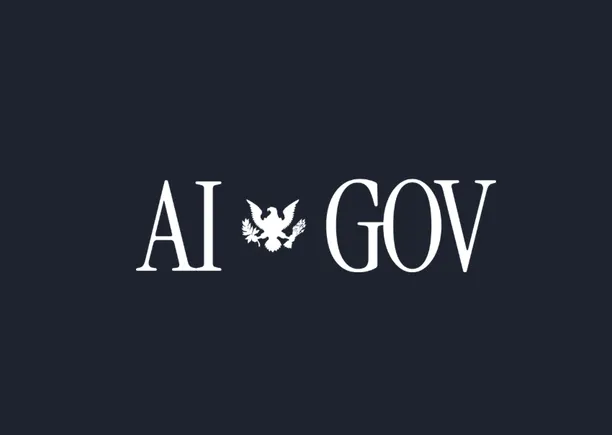If your team’s notes, recordings, and meeting action items are scattered across apps, Zoho is pitching a simpler path. The company has rolled a wave of AI features into Zoho Notebook—its note-taking and collaboration app—aimed at helping small businesses centralize documentation, speed up follow-through, and reduce context switching.
Key Takeaways
- AI comes to everyday notes: automatic audio transcription with speaker labels and summaries; one-click mind maps from long notes; grammar fixes, rewrites, tone changes, and quick checklists.
- Faster organization: AI-generated smart tags and voice search to find content across notebooks.
- Whiteboards and shared workspaces: teams, projects, or departments can co-create docs, sketches, and images in one place.
- Upcoming sales tie-ins: meeting-notes intelligence, plus new connections to Bigin and deeper Zoho CRM context for sales teams are on the roadmap.
- Privacy messaging: Zoho reiterates that Notebook is ad-free and emphasizes a “your data is yours” stance.
What’s New, in Plain Terms
Notebook AI, powered by Zoho’s in-house engine Zia, now sits inside Zoho Notebook to automate common writing and organization tasks. Teams can record or upload audio and get structured, time-stamped notes with labeled speakers and condensed summaries—useful for sales calls, interviews, or internal meetings. A one-click “AI Mind Map” turns long text into a visual map to clarify next steps or dependencies. The built-in writing assistant can summarize, rewrite, fix grammar, change tone, and even generate checklists or insert tables and code blocks when you need structure fast. Voice search and translation help teams find and convert content across languages, and AI-generated smart tags accelerate filing and retrieval.
Zoho also highlights some platform niceties, including the ability to auto-record meetings on Mac for real-time transcription without inviting a bot to the call. For visually oriented notes, Notebook improves handwriting and shape recognition, and it supports hands-free search via voice.
Why Small Businesses Should Care
Small teams often lack the time to wrangle notes after a client call or staff huddle. By turning recordings into structured notes—then into checklists—Notebook AI helps owners move from discussion to execution faster. One click to map a long project note into a visual model can make dependencies visible for non-technical stakeholders. And because the AI can rewrite or simplify language, customer-facing drafts (follow-ups, recap emails, SLAs) may require less manual polish before sending.
Zoho positions Notebook as a central workspace for teams and departments, with whiteboards for brainstorming and shared notebooks for ongoing projects. That matters for entrepreneurs who want to keep documentation and lightweight task tracking close to the conversation rather than spread across multiple tools. Zoho’s site underscores that the app is free and ad-free, which is attractive for budget-sensitive firms testing an AI-assisted notes workflow.
“Your data is yours and yours only. We won’t look at your data, do ads or sell your data to any third-party vendors. Simply said we don’t own your data. You do”
Zoho’s security guide for Notebook puts that privacy promise in writing—useful context for owners weighing AI tools but cautious about data sharing.
Where It Could Help First
- Sales and client services: Record discovery calls, generate labeled transcripts, and auto-produce recap bullets and next steps you can drop into your CRM or email.
- Project kickoffs: Paste long planning notes and convert them to a mind map for stakeholders who prefer visuals.
- Team standups and interviews: Use summaries to cut down on manual note clean-up and create checklists for owners and deadlines.
- Cross-language teams: Translate notes or search by voice when you’re on the move.
What to Watch
Pricing and limits: Zoho offers Notebook as a free, ad-free app, but Notebook AI—the new assistive layer—has its own pricing after a trial. A Zoho announcement earlier this year referenced USD $4.99 per month or $49.99 per year for Notebook AI on a device after the trial, which is helpful for budgeting pilots; confirm current pricing before rollout, as plans and tiers can change.
Workflow fit: AI summaries and mind maps are only as useful as the inputs. If your team’s recordings are noisy or unstructured—or if action items live elsewhere—build a short checklist for consistent capture (who, what, when) so the AI’s output drops neatly into your process.
CRM handoffs: Zoho says “meeting notes intelligence,” integration with Bigin, and deeper Zoho CRM context are coming. If your shop already runs on Zoho’s stack, those links could reduce manual copy-paste between call notes and pipeline updates. In the meantime, Notebook connects into Zoho’s ecosystem and can be tied to Bigin via automation tools like Zoho Flow or third-party connectors, a path some teams may use while they wait for native tie-ins.
Availability and Getting Started
Zoho’s Notebook site showcases broad functionality—shared workspaces, whiteboards, web clipping, and security and privacy documentation—plus a dedicated page for the AI features. If you are evaluating the tool, a low-risk path is to trial Notebook AI on a few recurring meeting types (sales discovery, weekly team sync) and compare completion rates for follow-ups before and after introducing AI summaries and checklists.
For cash-conscious owners already using Zoho apps, the appeal is consolidation: notes, whiteboards, and AI assistance live inside the same vendor family as CRM, projects, and mail, with additional sales context on the way. If it helps your team capture decisions and move faster with less administrative drag, the tool will earn its place in your stack.







